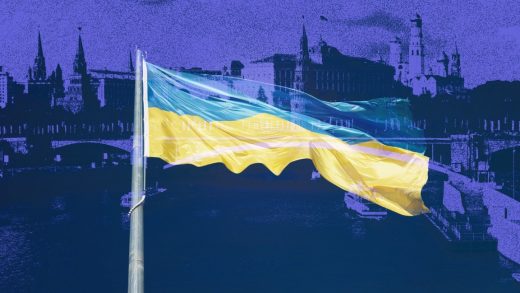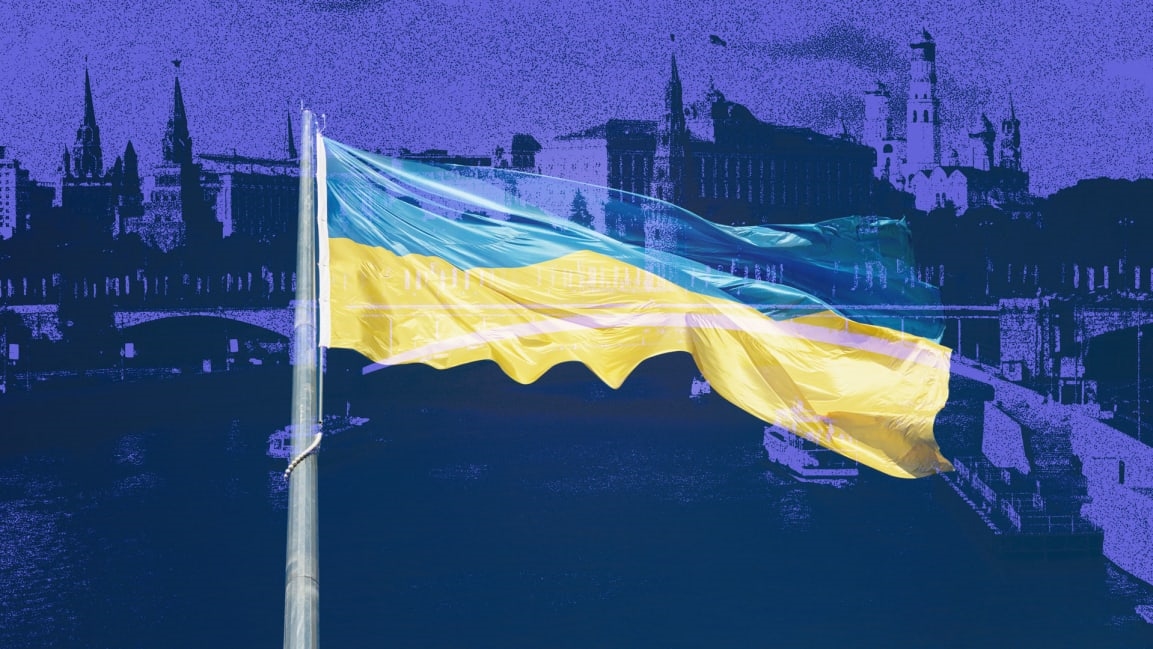Ukraine is a turning point for the Kremlin’s internet tactics
In the last decade, Russia has built up an effective strategy for controlling information about the Kremlin within the country’s own borders and for sowing dissent in democracies around the world. As Vladimir Putin’s devastation of Ukraine wears on, Russia’s credibility has been severely diminished, forcing the country to rethink how it disseminates propaganda—a shift that could make Russian disinformation harder to combat.
“The top line is, while Russia has demonstrated that they can be quite effective at sowing information chaos about issues that are about other countries’ domestic issues, they are colossal failures at sowing mis- and disinformation about their own activities,” says Vivian Schiller, executive director of Aspen Digital, a technology focused group within think tank Aspen Institute.
Russia has developed a multi-layered approach to interfere in global affairs in order to advance its own agenda. In the U.S., Russia deployed a combination of fake social media accounts and bots in the 2016 election to sow division among Americans—a tactic that played a role in Donald Trump’s ascent to the White House. It also runs its own media operations in the U.S. including Sputnik News and television network RT, which the State Department says are “critical elements” in the country’s overall disinformation strategy. A recent report from Mother Jones shows Russia also actively crafts narratives with the hopes of getting picked up by sympathetic pundits like Tucker Carlson.
While this disinformation apparatus has worked to influence foreign affairs, Russia is proving less effective at controlling the public narrative about itself, and Russians are increasingly dubious of the official story line that Russia is trying to “denazify” Ukraine.
Last week, the head of the U.S. Central Intelligence Agency, Bill Burns, testified to the Senate Intelligence Committee that the brutal realities of the war in Ukraine are seeping into Russia, despite the country’s best efforts to keep that out. A poll conducted by a group connected to Russian anti-corruption activist Alexei Navalny (who’s currently serving a prison sentence in Russia that may get extended) shows that over the week ending on March 3, the number of people who believed that Russia was the aggressor in Ukraine more than doubled.
“It’s almost shocking how ineffective their communication and external attempts at propaganda or changing public opinion and what a failure it has been since the war started,” says Schiller.
4/14 We can observe rapid shifts in the evaluation of Russia’s role in the war. The share of respondents who view Russia as the aggressor doubled, while the share of those considering Russia a “peace-maker” halved. pic.twitter.com/Rw7ORosVpH
— Alexey Navalny (@navalny) March 8, 2022
Shutting down the internet
In response to its own failure, Russia has ejected all outside media from within its borders. In the weeks since Russia invaded Ukraine on February 24, 2022, the country has tightened its control over the information its residents receive. It passed a law criminalizing news that does not reflect state media narratives, forcing Western news organizations–including the BBC, CNN, and ABC News–to shut down their operations in Russia. It has also blocked access to Twitter, Facebook, and Instagram.
“Until recently, you could have access to Twitter and Facebook and Telegram,” says Paul Barrett, deputy director of New York University’s Stern Center for Business and Human Rights. “I think coming out of this, [Russia is] gonna be much closer to China . . . where if you try to get on a Facebook group talking about spreading democracy in Russia, you might have the police knocking at your door very quickly.”
It’s unclear whether Russia will maintain its policy toward non-state funded news or social media platforms. “Even in the Soviet Union, it wasn’t this bad,” says Schiller. “American reporters could report. News got in. We’re in new territory.”
Yet, Shiller is not so sure the current level of media containment will continue in the long term. “There are not many other countries in the world, even in China, where those limits have been quite so successful and,” she says. “It’s gonna be tough to sustain.”
Russia has been slowly tightening restrictions on media in the country for a while. In 2019, Human Rights Watch reported the increase in laws that hamper free expression. These include rules that allow the government to block certain content on the web and punish companies that facilitate private web activity through virtual private networks.
More subtle campaigns
As Russia tries to control the narrative inside its own country and in the greater global landscape, experts say the country may return to Cold War tactics, when the Kremlin used figures and organizations that were sympathetic to its cause to distribute its messaging. “Western audiences will be less trusting of Russian sources directly,” says Emerson Brooking, a resident fellow at Digital Forensic Research Lab of the Atlantic Council, a think tank based in Washington D.C. “I think it will force more focus on clandestine manipulation and on the use of sock puppets and on networks that don’t attribute themselves as Russian propagandists.”
For example, far-right wingers and QAnon devotees are circulating an old Russian conspiracy theory that the war in Ukraine is actually an effort to destroy a bioweapons lab in Ukraine. The lab is supposedly a collaboration between the U.S. and Ukraine. This narrative seems to be gaining traction because it aligns with certain false beliefs that COVID-19 is a bioweapon and casts aspersions on the Biden Administration. “It’s always gonna be through proxies,” says Schiller.
In addition to that, it has mastered the use of social media as a vector for disinformation. An example of this is the recent rise of “deep fakes,” videos contrived to look and sound like a real person, related to Ukraine that have been circulating on social media. One of the most notable, is a fake video of Ukraine President Volodymyr Zelenskyy telling Ukranians to lay down arms. Russia has also been disseminating fake fact-checking articles on social media. There are parties, like Snopes, actively debunking these videos, but it’s impossible to catch every one, especially on platforms like TikTok, where content is more tailored to the individual.
Going forward, Brooking says that Russia will look for other opportunities to circulate stories that put Russia in a good light, like the bioweapons lab narrative. “I think the speed and uniformity of the Western response took Russia by surprise and really limited any effective propaganda measure at that moment,” he says. But that will change as the war gets more complicated and people fracture over what the ultimate solution should look like, opening up an opportunity for Russia to amplify story lines that suit its agenda. What exactly that will look like is unclear.
“Russia’s still finding its message,” he says.
Fast Company , Read Full Story
(34)



